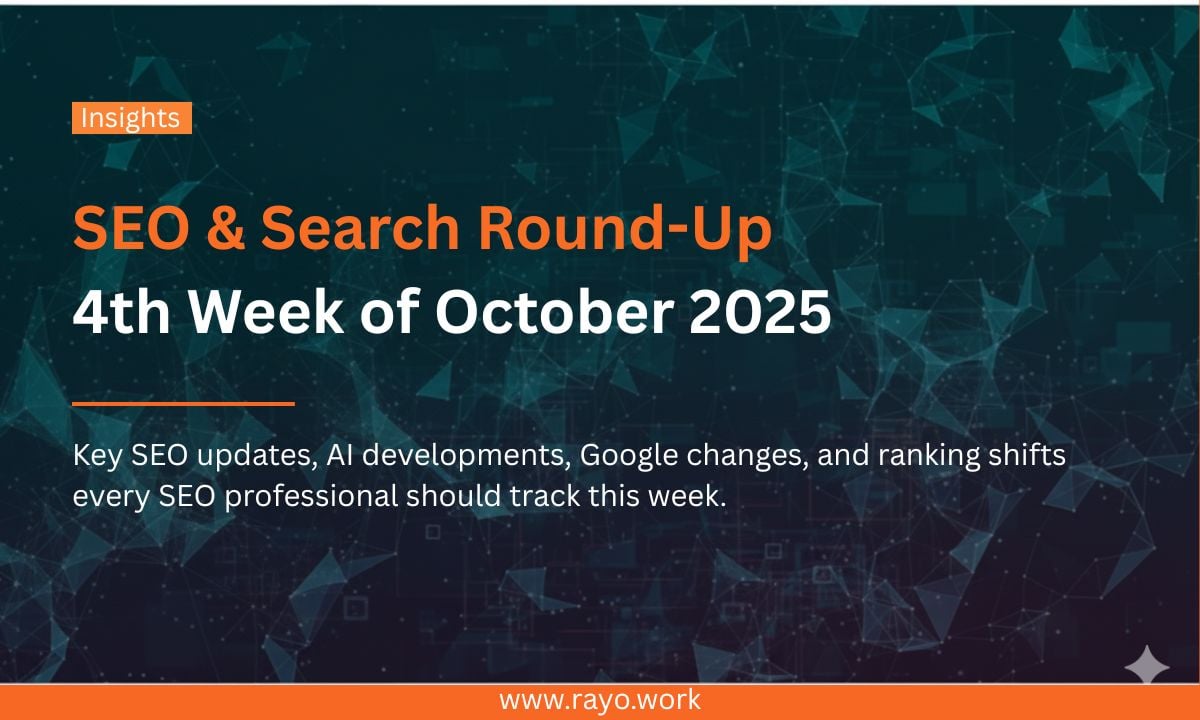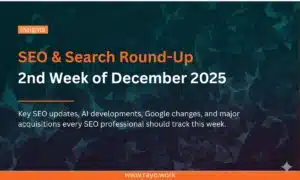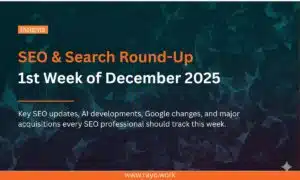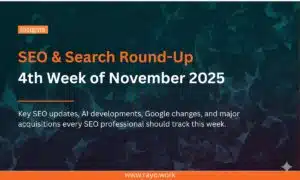The last week of October once again reminded us that search never stands still.
From OpenAI stepping into browser territory with ChatGPT Atlas to Google reshaping analytics and voice interaction through Gemini, the industry is evolving at a pace that challenges even the most adaptive teams.
A landmark lawsuit questioning AI’s use of public data and Surfer SEO’s move into the AI era rounded off a week where innovation met uncertainty, where every new update seemed to rewrite a small part of how discovery, measurement, and creativity coexist online.
Below are the key developments from this week, and what they mean for your strategy.
1. Search Console Performance Report Delays
What happened:
Google confirmed ongoing delays in Search Console’s performance reports, with teams working on a fix. While rankings and indexing remain unaffected, the lag is preventing users from accessing up-to-date data.
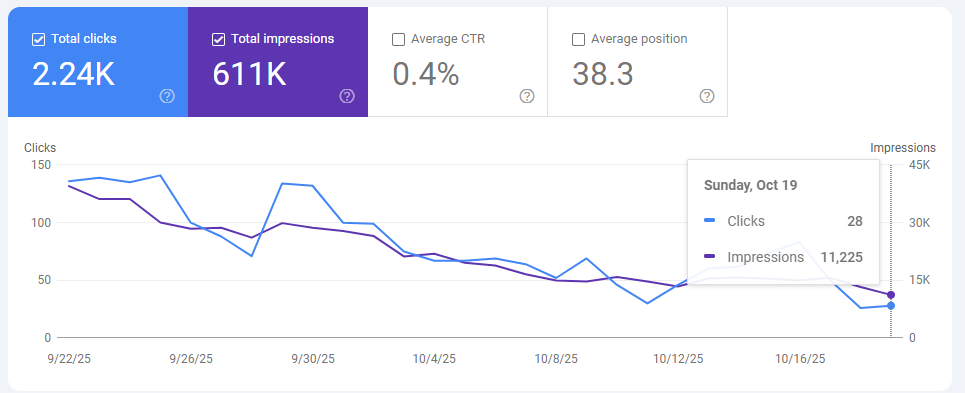
What Google said. Daniel Waisberg from the Google Search Central team who works with Search Console said on X, “We’re catching up.”
Here is that post:
Google Search Console default view for the performance report stuck on October 19th, Sunday https://t.co/1nUIILT93n hat tip @ManikandanNSEO pic.twitter.com/MdCzCRKewK
— Barry Schwartz (@rustybrick) October 23, 2025
2. Voice Search Reimagined with Gemini
What happened:
Google introduced an updated voice search model powered by Gemini’s speech-to-retrieval system. The new version interprets multi-turn, contextual queries and integrates AI responses directly within results.
Google Announces A New Era For Voice Search. via @martinibuster: https://t.co/6H04XcFvXh#seonews #Google #SEO pic.twitter.com/en1RIgShbC
— SearchEngineJournal® (@sejournal) October 21, 2025
Why it matters:
This evolution signals a shift from simple voice commands to natural, conversational interactions, a preview of how Gemini could transform everyday search habits.
What to do:
- Optimise content for conversational and question-based phrases.
- Include FAQs and context-rich answers.
- Monitor early voice query trends through Search Console once reporting stabilises.
3. Reddit Sues Perplexity and SerpAPI Over Data Scraping
What happened:
Reddit has filed a lawsuit against Perplexity and SerpAPI, accusing them of scraping its data for AI training and display without consent. The case could set a precedent for how content is used by AI systems.

Complaint doc:
Why it matters:
The outcome could affect how publishers, SEOs, and platforms control data visibility and licensing in the AI era.
What to do:
- Track this case for future compliance implications.
- Review your content’s robots.txt and AI access policies.
- Educate clients on data usage rights and attribution.
4. ChatGPT Atlas Browser Launches
What happened:
OpenAI launched ChatGPT Atlas, a built-in web browser for ChatGPT that allows users to browse, summarise, and interact with live web pages. It bridges the gap between static AI chat and dynamic, real-time search.
Why it matters:
Atlas directly challenges Google’s AI Mode by enabling context-rich, citation-based exploration, further redefining how users consume and verify information online.
What to do:
- Monitor referral data for new “Atlas” traffic sources.
- Prepare content to appear in structured, summarised formats.
- Experiment with content that clearly answers “who,” “what,” and “why”, perfect for AI retrieval.
5. Surfer SEO Acquired by Positive Group
What happened:
Surfer SEO was acquired by Positive Group to accelerate its evolution into a more AI-driven optimisation platform. The acquisition aims to scale predictive insights and automate content strategies for enterprise users.
Surfer Acquired: A New Chapter
— Matt Diggity (@mattdiggityseo) October 21, 2025
I first discovered Surfer in 2019 on a friend’s laptop. One glance at the software and I had to try it.
When I later met the small five-person team, their talent and passion made it clear I had to invest.
Six years later, after plenty of blood,… pic.twitter.com/mTuVaptq4O
Why it matters:
This move reflects a growing trend, SEO tools are becoming full-stack AI systems. Expect enhanced integrations, competitive pricing, and stronger automation capabilities.
What to do:
- Reassess your SEO tool stack for feature overlaps.
- Watch for upcoming AI modules or pricing updates from Surfer.
- Leverage early access or beta tools to stay ahead.
Other Great Search Threads (Last Week of October 2025)
- Google Interface Test — SERP Alerts on X
→ A new interface layout spotted in Google Search results hints at redesigned card-style SERPs, possibly optimised for AI integration. (Link) - New Google Business Profile Feature — Hiroko Imai on LinkedIn
→ Google added a drag-and-drop capability for managing profile visuals and featured images, streamlining local SEO updates. (Link) - Indexing Clarifications — John Mueller on Bluesky
→ John addressed how Google handles conflicting canonicals and redirects, reaffirming that small inconsistencies won’t derail indexing. (Link) - Blank SERPs Trend — Cryps1s on X
→ Several SEOs reported blank or thin SERPs for specific queries, sparking discussions about new indexing filters or trust signals. (Link) - Algorithm Reversals & Volatility — Glenn Gabe on X
→ Glenn showcased new examples of rank reversals tied to ongoing volatility, signalling smaller but more frequent quality adjustments. (Link)

Ridam Khare is an SEO strategist with 7+ years of experience specializing in AI-driven content creation. He helps businesses scale high-quality blogs that rank, engage, and convert.
